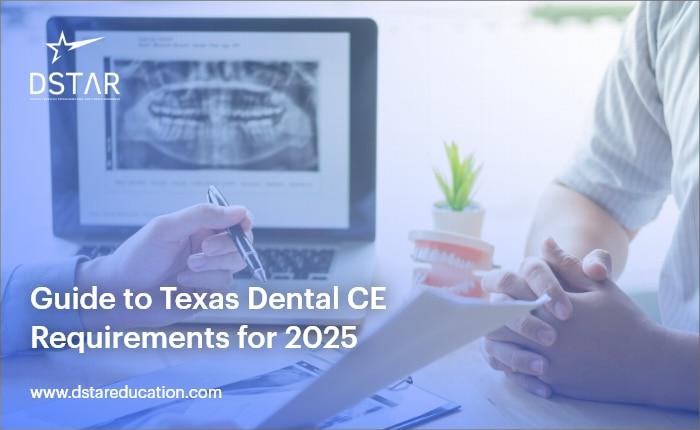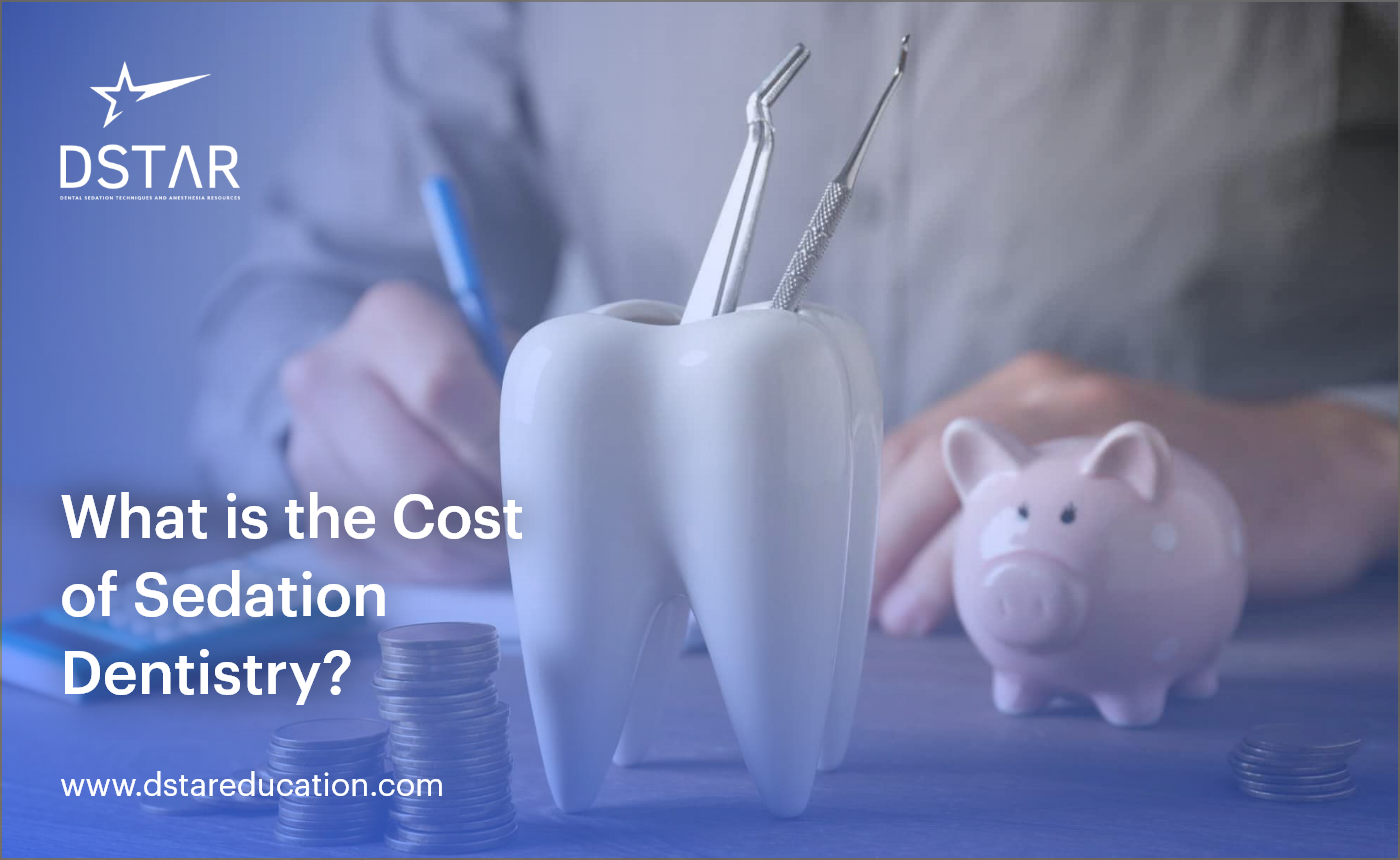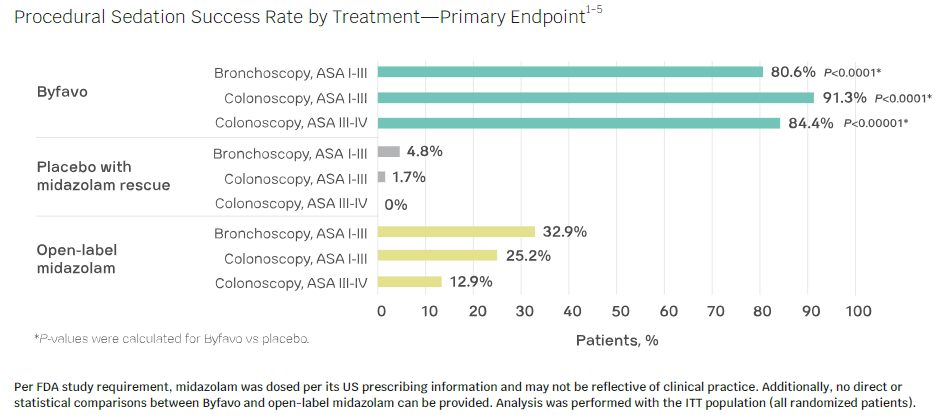Continuing education (CE) is a fundamental part of professional development for Texas dentists, ensuring they remain proficient with the latest dental practices, technologies, and regulations. To maintain licensure, dentists must meet specific CE requirements set by the Texas State Board of Dental Examiners (TSBDE), which apply to both general dentists and specialists.
For 2025, updated CE mandates require dental professionals to fulfill these standards within their license renewal cycle. This guide outlines the Texas dental license renewal CE requirements and provides essential details to help practitioners remain compliant and deliver the highest standard of patient care.
Texas Dental License Renewal CE Requirements
As part of the renewal process, dentists must complete a specific number of CE hours within the two-year renewal cycle. The key components of the Texas dental license renewal CE requirements include the following:
- Total CE Hours: Dentists must complete a minimum of 12 hours of CE each year. These hours should include courses directly related to the practice of dentistry.
- Mandatory Courses: A portion of the CE hours must be dedicated to specific courses. For example, as of 2025, Texas dentists are required to take a two-hour course on ethics and jurisprudence as part of their CE hours. This course ensures that dentists are informed about the latest legal and ethical guidelines governing their practice.
- Provider Accreditation: Courses must be provided by accredited CE providers. Dentists should verify that the courses they take are approved by the TSBDE to ensure compliance.
- Specialization Requirements: For specialists, additional CE hours may be required in specific areas of expertise. For example, a periodontist may need to take more CE related to advanced periodontal treatments than a general dentist.
Types of CE Courses for Texas Dentists
Dentists in Texas are encouraged to take a broad range of CE courses to stay informed about industry trends and meet state mandates. Some common categories of courses include:
- Clinical Practice Courses: These courses focus on the latest techniques, technologies, and methodologies in dentistry. Topics may include advancements in restorative materials, sedation techniques, dental implantology, and pediatric dentistry.
- Patient Safety and Infection Control: Infection control training is critical in maintaining a safe environment for both patients and staff. Dentists must take courses addressing sterilization, disinfection protocols, and other infection control measures.
- Ethics and Jurisprudence: A two-hour ethics course is mandatory for Texas dentists every renewal cycle. This ensures that dentists are knowledgeable about the ethical considerations and legal aspects of their practice.
- Practice Management: Courses focusing on practice efficiency, marketing, and patient management are valuable for practice owners or those in leadership roles.
Human Trafficking Prevention Training Requirement for Texas Dental Professionals
Since September 1, 2020, the Texas State Board of Dental Examiners (TSBDE) requires all dental health care personnel, including dentists, hygienists, and dental assistants, to complete a human trafficking prevention training course. The Texas Health and Human Services Commission (HHSC) approves this course. Dental professionals must complete this training for every license renewal on or after that date.
Dental health care providers regularly interact with patients and hold a unique position to recognize victims of human trafficking. Completing this training equips them to identify, respond to, and report suspected cases effectively. This requirement reinforces their responsibility to protect vulnerable individuals and support community safety.
Record Keeping and Documentation
It is the dentist’s responsibility to maintain accurate records of their CE activities. The Texas State Board of Dental Examiners requires dentists to retain proof of course completion for at least four years. In the event of an audit, dentists must submit this documentation to demonstrate compliance with the CE requirements. Maintaining these records in an organized, easily accessible format will help ensure a smooth audit process.
Renewal Deadlines and Processes
Texas dentists must renew their licenses every two years, and the renewal process includes submitting proof of completed CE hours. The following steps outline the general renewal process:
- Complete Required CE Hours: Ensure that all required CE hours are completed within the two-year period before your license expires.
- Submit Renewal Application: Complete the online renewal application on the Texas State Board of Dental Examiners’ website.
- Submit Proof of CE Hours: While the TSBDE does not require dentists to submit proof of CE with every renewal, dentists must retain this documentation for audit purposes.
- Pay Renewal Fee: All licensed dentists in Texas must pay the renewal fee.
Pro Tip: DSTAR Education offers a comprehensive selection of online Continuing Education (CE) courses tailored for dentists, with a primary focus on dental sedation and anesthesia. These courses are designed to meet licensure renewal requirements, enhance clinical skills, and ensure compliance with regulatory standards.
Texas Dentist CE Requirements for New Dentists
Newly licensed dentists in Texas are also subject to the state’s continuing education regulations. However, there are specific stipulations for dentists who have recently completed their dental education:
- Initial CE Requirements: New dentists must complete a set number of hours of CE within the first renewal period, which can differ from the standard CE requirements.
- Supervised Practice: New dentists may also be required to participate in supervised practice or mentorship during their first few years of practice, which can count toward their CE hours.
Staying Compliant with Texas Dental CE Requirements
It is essential for dentists in Texas to stay informed about updates to the Texas dentist CE requirements. The TSBDE regularly publishes updates regarding CE standards and provides resources to help dental professionals meet these mandates.
To remain compliant and avoid penalties, dentists should:
- Check for Updates Regularly: The Texas State Board of Dental Examiners’ website and other reliable sources regularly provide updates on CE regulations.
- Choose Approved CE Providers: Ensure that the CE providers selected are approved by the TSBDE to guarantee the courses count toward licensure renewal.
- Plan Ahead: Since some courses are only available during certain periods, it is wise to plan ahead to ensure that all required courses are completed before the renewal deadline.
Renew Texas Dental License Now
If you are preparing to renew your Texas Dental License, the process can feel overwhelming without the right guidance. At DSTAR Education, we make it simple by offering comprehensive CE courses and compliance-focused training designed specifically for Texas dentists. Our expert-led programs ensure you meet all state requirements on time while gaining valuable knowledge to grow in your practice. Enroll today to complete your requirements smoothly and keep your license active without delays.
Recommendations for 2025
- Plan Your CE Early: Begin researching accredited CE providers early to ensure that all required courses, including ethics and jurisprudence, are scheduled well in advance of the renewal deadline. Avoid waiting until the last minute to complete CE hours, which may lead to scheduling conflicts.
- Diversify Your CE Courses: While completing the required ethics and jurisprudence course is mandatory, consider diversifying your CE hours by including topics that directly enhance your clinical practice or explore emerging technologies in dentistry. This will not only meet the requirements but also improve your clinical expertise.
- Track Your CE Hours Diligently: Maintain a detailed log of completed courses, including certificates of attendance, course descriptions, and course content, to ensure you are prepared in the event of an audit. Digital storage systems or CE management software can make this process more efficient.
- Stay Informed about Changes: CE requirements may change over time, so it is important to check the Texas State Board of Dental Examiners’ website regularly or subscribe to their newsletters for updates. This will help ensure that you are always aware of any changes in regulations or new course requirements.
- Consult with Peers or Mentors: Discuss CE requirements and course selections with peers or mentors in your field to ensure you’re taking advantage of high-quality, relevant learning opportunities. This may also provide insight into upcoming trends in dentistry and professional development.
Conclusion
Navigating the Texas dental CE requirements is an important aspect of maintaining licensure and providing optimal care to patients. The Texas dental license renewal CE requirements for 2025 mandate that dentists complete a range of courses, from clinical practice updates to ethics and jurisprudence training. Dentists must make sure they meet these requirements to stay compliant with state regulations, enhance their professional skills, and contribute to the ongoing advancement of the dental profession in Texas.
By adhering to the state’s guidelines, dental professionals can continue to provide high-quality care while fulfilling their legal obligations. Staying informed about CE requirements and completing the necessary hours is essential for all Texas dentists.
References
- American Dental Association (ADA). (n.d.). Continuing Education Requirements for Dentists in Texas. Retrieved from: https://www.ada.org
- Texas State Board of Dental Examiners (TSBDE). (n.d.). Texas Dental License Renewal Requirements. Retrieved from: https://www.tsbde.texas.gov
- NetCE. (n.d.). Texas Continuing Education Requirements for Dentists. Retrieved from: https://www.netce.com
- Elite Learning. (n.d.). Texas Continuing Education for Dental Professionals. Retrieved from: https://www.elitelearning.com
- Texas Dental Association (TDA). (n.d.). Continuing Education Requirements for Texas Dentists. Retrieved from: https://www.tda.org
 Take Free TSBDE Anesthesia Jurisprudence Practice Exam Now!
Take Free TSBDE Anesthesia Jurisprudence Practice Exam Now!












